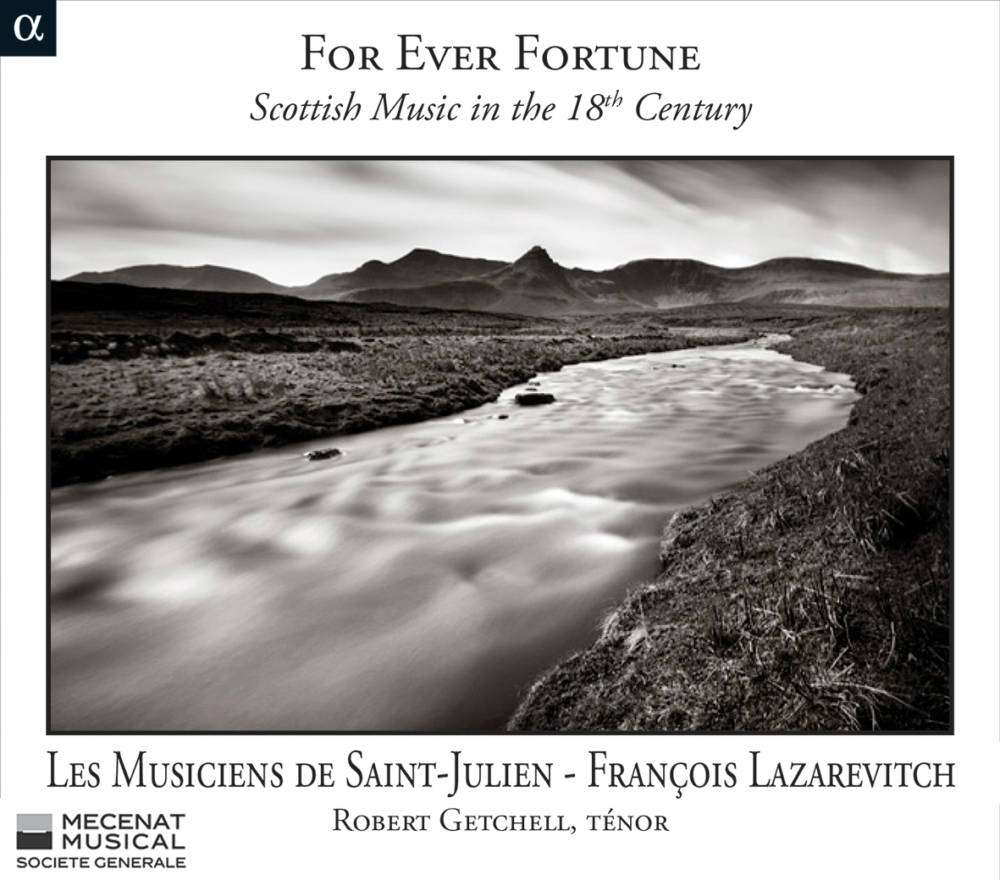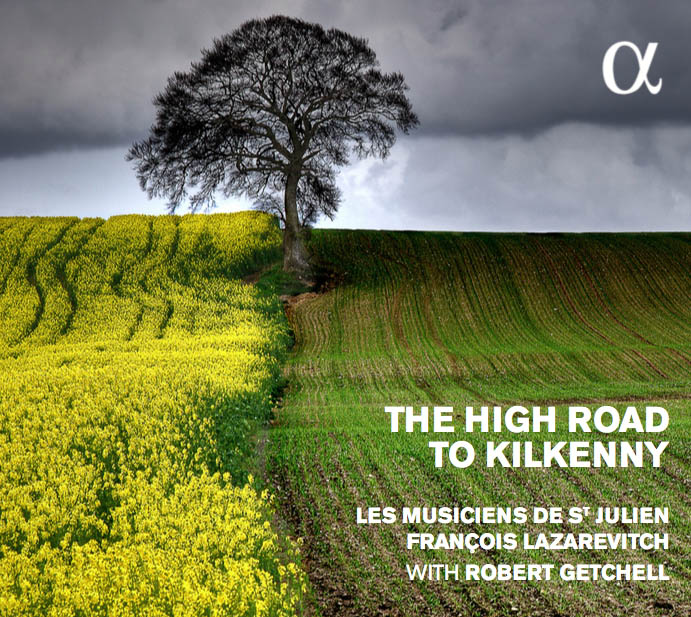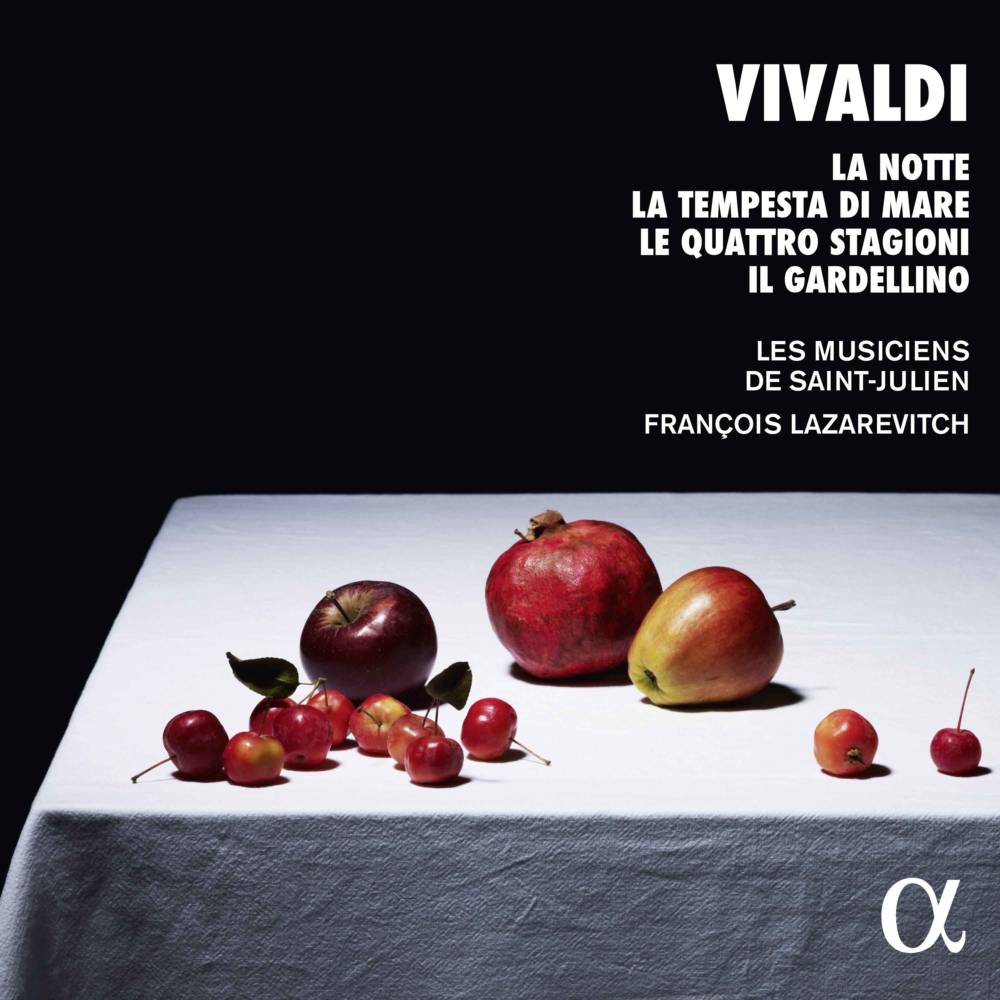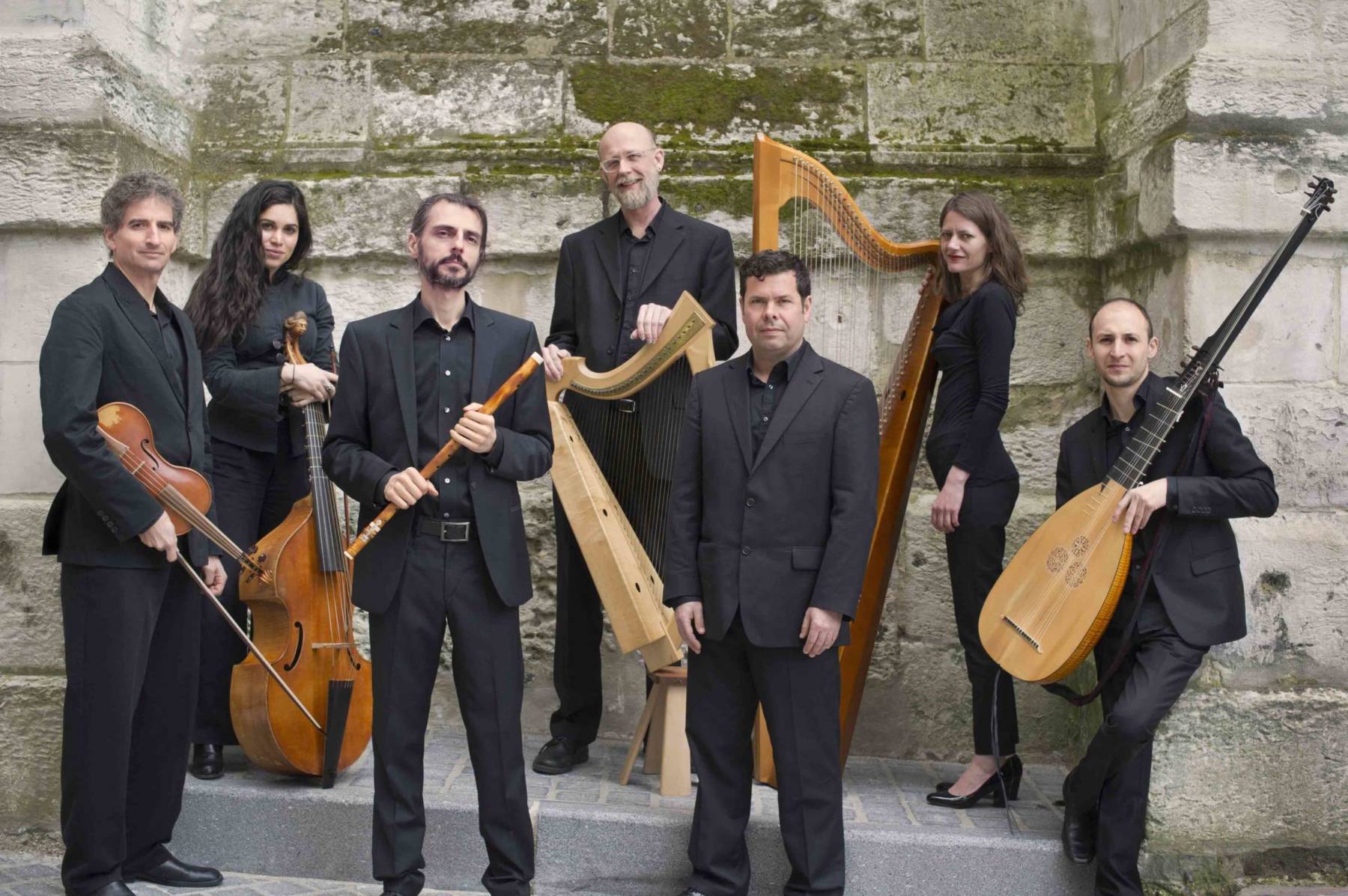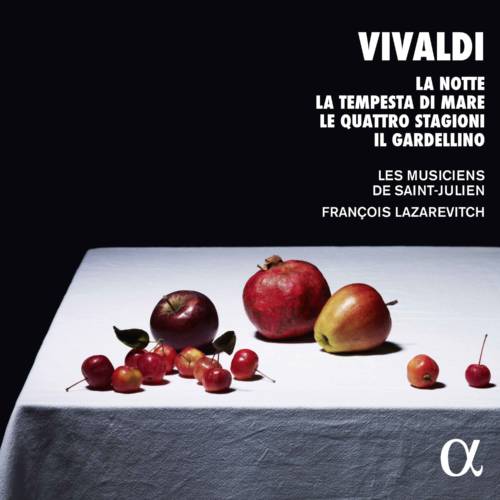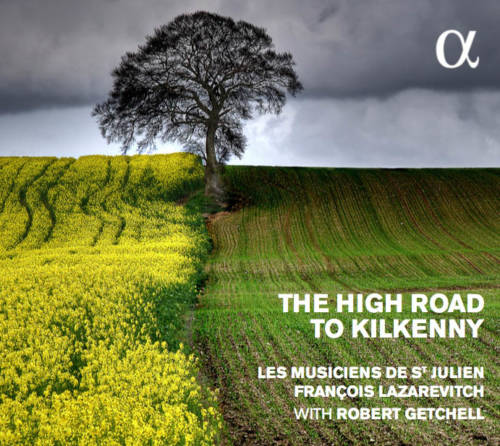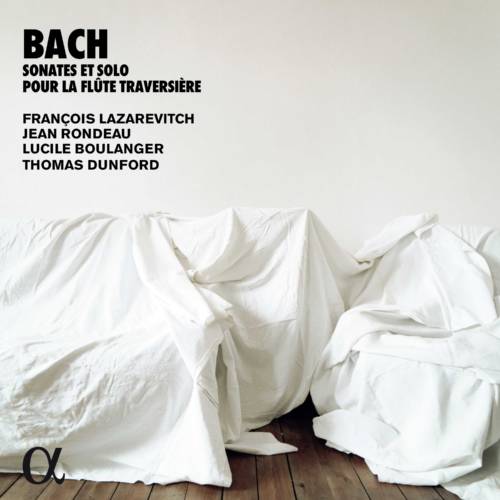Purcell Songs & Dances
Airs for countertenor and instrumental dances
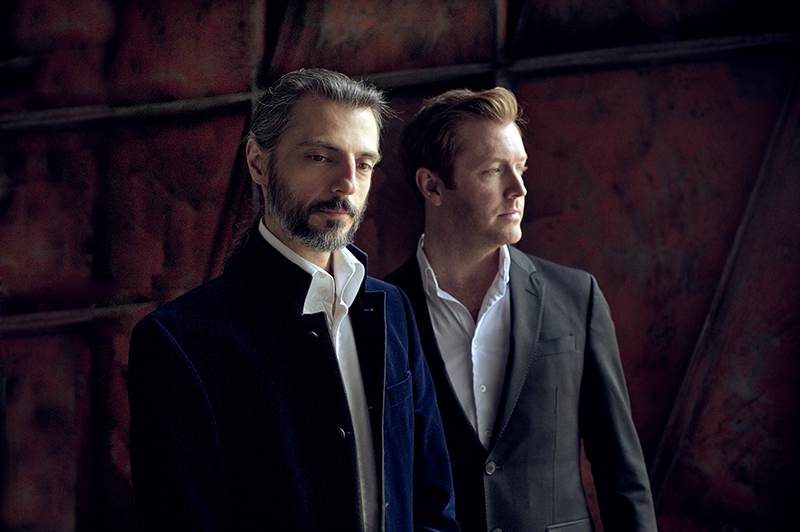
Description
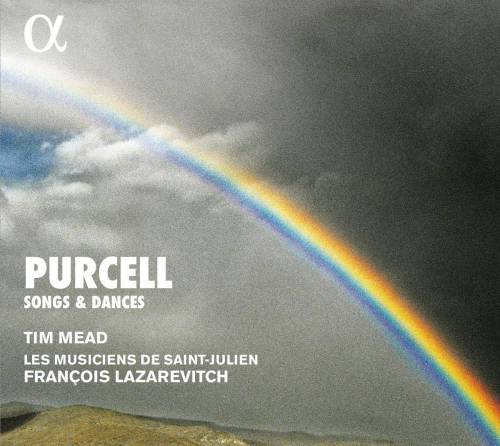
Disc
Purcell, Songs and dances
The Musiciens de Saint-Julien, under the leadership of the virtuoso flautist François Lazarevitch have already passed beneath the skies of Ireland and Scotland, but here they sing with countertenor Tim Mead as they cross to the land of England with this mainly secular programme, dedicated to Henry Purcell, varying the climates in the alternation of instrumental dances and sung airs.
« O Solitude », « Strike the Viol », « The Cold Song »… If Les Musiciens de Saint-Julien have chosen these famous titles above all for pleasure, they have also used this English programme to add a new piece to the puzzle of their map of the United Kingdom. They also show – and the atypical colours of the small string ensemble completed by two flutes, a harp and a harpsichord/lute continuo are there to underline it – the musical porosity between Ireland, Scotland and England. The common thread, dear to the Musiciens de Saint-Julien, is that of popular music inscribed at the heart of art music, of a mixing of origins, practices and repertoires. It is easy to recognise the Scotch and Irish tunes that Purcell (1659-1695) incorporated into his jigs, hornpipes and chaconnes. Purcell is the only composer on this programme, but the variety of moods that follow one another or collide, ranging from gentle melancholy to lighter songs, revealing both the immense richness of the English composer and showing not only his extraordinarily varied palette but also the ever-changing light the ensemble shines on his music. The countertenor Tim Mead punctuates the dances with airs conceived for the opera and theatre stage, as well as for chamber music.

with the support of Adami
8 to 11 artists
Soloist
Tim MEAD, countertenor
Instruments
2 violins, viola, viola da gamba, double bass, transverse flute/recorder/musette, 2 recorders/oboes, theorbo/guitar, harpsichord/positive organ
Distribution in France :
Les Concerts parisiens
Vincent Lafourcade
vincent@concertsparisiens.fr
+33 (0)1 48 24 16 97 / +33 (0)6 68 81 20 08
Video
The programme disc
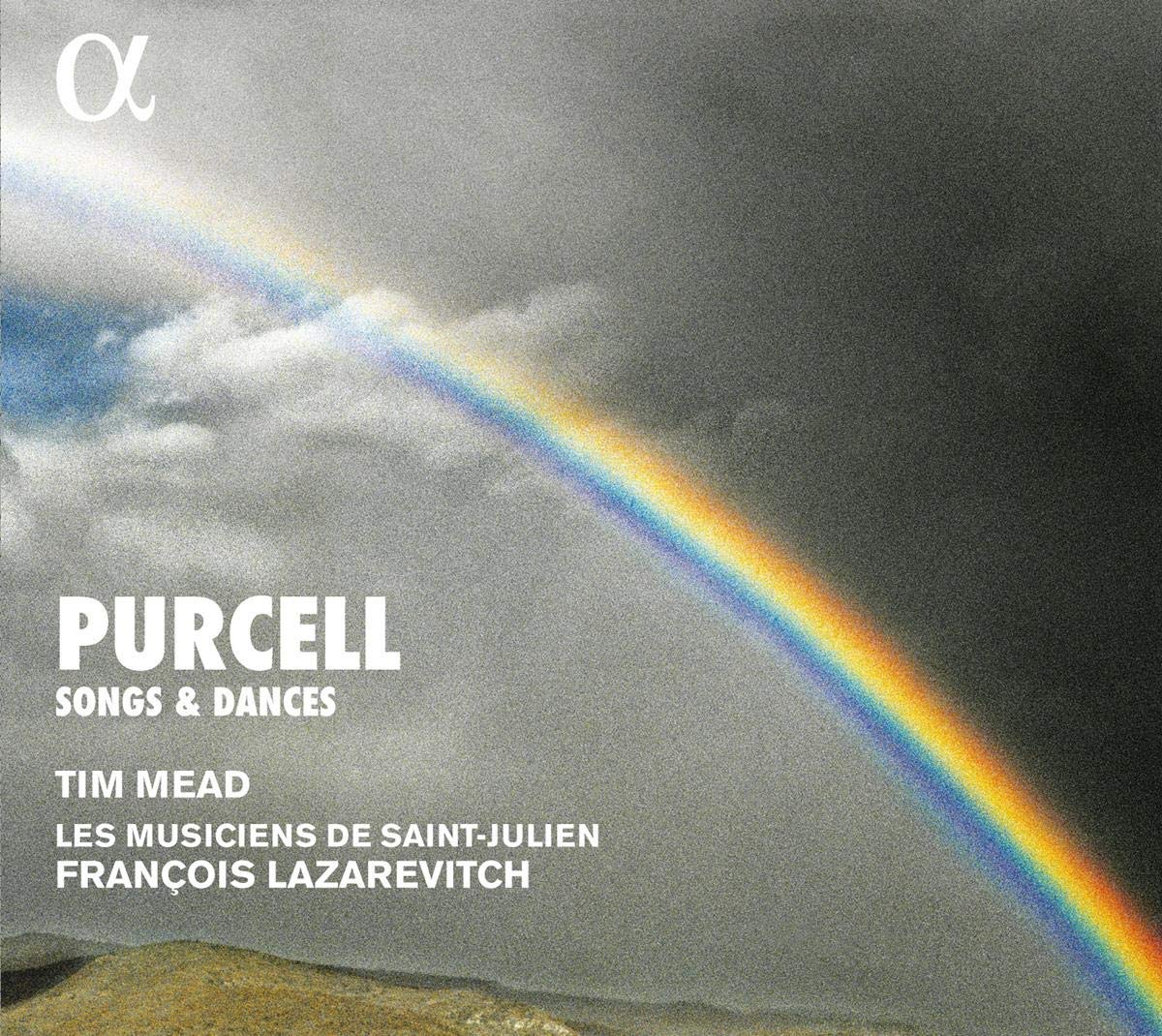
 The Sunday Times – Album of the Week
The Sunday Times – Album of the Week
Alpha Classics • Alpha 419 • ISBN 3760014194191 • 1 CD • 1 h 06
- Minuett – Hornpipe – Boree (3:44)
- Stricke the Viol, Touch the Lute (3:40)
- O Solitude, my sweetest choice (5:21)
- Pavan in G minor (4:38)
- Here, the Deities approve (4:22)
- Hornpipe (2:16)
- May her blest example chase (3:11)
- Fairest Isle (4:19)
- What power Art Thou (2:46)
- Aire (1:10)
- Twas within a furlong of Edinboro (3:14)
- Scotch Tune (2:05)
- Here let my life with as much silence slide (3:04)
- Fantazia upon a ground (4:46)
- Tis nature voice (4:49)
- March (1:30)
- Curtain Tune (4:19)
- Song Tune (1:42)
- One charming Night (2:15)
- Chaconne (2:49)
Programme
Curtain Tune [Timon of Athen – Z.632]
O Solitude, my sweetest choice (Z.406)
One charming Night [The Fairy Queen – Z.629]
Chaconne [The Fairy Queen – Z.629]
Here, the Deities Approve [Ode for St Cecilia’s Day, Z.339]
March [The Married Beau – Z.603]
Song Tune [“We the Spirits of the Air” – The Indian Queen – Z.630]
Hornpipe [The old Bachelor – Z.607]
‘Tis nature voice [Ode for St Cecilia’s Day, 1692 – Z.328]
Here let my life with as much silence slide [If ever I more riches did desire, cantate, Z.544]
Fantazia upon a ground (Z.731)
May her blest example chase – Jig [Tune: Hey boys, up go we] – Borry
Fairest Isle [King Arthur – Z.628]
What power Art Thou [King Arthur – Z.628]
Aire [The Virtuous Wife – Z.611]
Scotch Tune [Amphitrion – Z.572]
‘Twas within a furlong of Edinboro’ town (Scots song) [Z.605/2]
Minuett – Hornpipe – Boree [Amphitrion – Z.572]
Strike the Viol, Touch the Lute [Come Ye Sons of Art, Birthday Ode, 1694, Z.323/5]
Press
november 2018
ResMusica
Jean-Pierre Sicard
Exaltation of dance and rhythm in Purcell by Tim Mead & François Lazarevitch
François Lazarevitch and the Musiciens de Saint-Julien emphasise the diversity of Purcell’s inspiration, united by a sense of rhythm rooted in the repertoire of popular and learned dances. With Tim Mead’s pure voice, Songs and opera arias complete this panorama. The initial Curtain Tune, from Timon of Athen, sets the tone: a lively Purcell, whose original bass line, with its driving rhythm, carries us away in a whirling dance, made dreamlike by the particularly delicate touch of the violins. Augustin Lusson’s sound quality and subtle virtuosity, which he displays throughout the concert, are particularly noteworthy. With the ‘hit’ O Solitude, Tim Mead then demonstrates his mastery of this repertoire, combining simplicity and depth, complexity of ornamentation and clarity of text. The remarkable homogeneity of his timbre, from the lowest to the highest notes, gives great purity to the vocal line. However, the delightful One charming Night from The Fairy Queen is a little disappointing, as if the very strong rhythm set by the instruments weighed down the vocal performance, whereas the aim, according to the writing and context of the work, is to plunge us into a sensual reverie. But in the chaconne that follows, taken from the same ‘semi-opera’, the Musiciens de Saint-Julien demonstrate just how much experience they have of a whole repertoire of baroque dances, both more popular and more learned. The variations give rise to delicious alliances between the instruments, resulting in highly seductive changes of sound atmosphere.You can imagine the elves dancing to these hopping, twirling rhythms…To show us the diversity of Purcell’s inspiration, passages from the Ode for St Cecila’s Day allow Tim Mead to give a darker interpretation, whose diction structures the developments, with very fine handling, all the more moving because the voice remains sober, supported by instruments of great delicacy.The Fantazia upon a ground revives the rhythmic dynamic and allows us to admire the contrasting sonorities of the recorder and traverso, as if its rich counterpoint and harmonic daring were simply a game for all the instrumentalists.In several of the works performed, François Lazarevitch and Elsa Frank show off their virtuosity as a duo, sometimes with a welcome touch of humour. The voice returns to dialogue with the instruments to embody the contrasts of King Arthur, from the poetic sweetness of Fairest Isle, taken up by the violin, to the highly successful dramatic effects of the famous ‘Air du froid’.The instruments and singer also offer us dances or tunes from popular music, evoking Irish or Scottish pubs and their musicians of all ages playing together, here transcended by virtuosity, the quality of timbre and the work on ornamentation.
november 2018
Ôlyrix
Nicolas Mathieu
Purcell Songs and Dances by Tim Mead at Salle Gaveau
The Salle Gaveau welcomes countertenor Tim Mead, François Lazarevitch and Les Musiciens de Saint-Julien for a baroque concert based on Purcell. The concert opens with the Curtain tune, in which the strings are strummed, plucked and strummed in tune, putting the audience in the spirit of Purcell. The rhythm calms down, Tim Mead rises on an ascending scale, round and full on the viola da gamba, declaring an ‘O, solitude’ between a challenging high and a resigned middle register. The voice is of great majesty, with an amber timbre, whose high notes, like the lowest notes, have a grain that is very pleasing to the ear and just right for expression. The vibrato, measured and controlled, serves an intelligently conducted articulation. In addition, the countertenor serves up his native language with prowess and a certain elegance, emphasising where the prose suggests in a discourse that is not just notes but words full of meaning. The ensemble’s two flutes join him to offer their warm sound in a Charming Night (The Fairy Queen), while the countertenor launches into the first melismas with a suave, gentle hold.The arias follow one another, from the syncopated ground of the harpsichord for Here, the Deities Approve, with its myriad light ornaments contrasting with a decisive, settled voice, to ‘Tis nature’s voice, where the vocalises follow one another with suppleness and light agitation over the layers of organ and theorbo, giving way to expressive glissandi.Dressed as King Arthur, he evokes the Fairest Isle with careful phrasing and natural lines, a suppleness that contrasts with the jerks of the Cold Song, where he builds up all the tension right up to the final ‘death’ (with the ‘d’ almost ‘t’ through expressive support). Finally, the countertenor ends his programme with an ode to music, with the four verses of Strike the Viol, Touch the Lute, in which the well-rolled ‘Strike’ gives the aria its bite.Conducted by François Lazarevitch , Les Musiciens de Saint-Julien gratify the audience with tactfully chosen instrumental pieces, demonstrating the Baroque composer’s inventiveness with beautiful dance movements (the Chaconne, the jig, a Scotch Tune), then indulge in a Fantazia upon a ground, whose multiple melodic and rhythmic variations are fervently embraced by chiselled or staccato lines. The ensemble displays great energy. A few shifts and a certain shyness in the strings occasionally dampen it, but that’s without counting on François Lazarevitch, whose confident playing on the flute or musette carries the ensemble with vigour.In addition to a cover of a Scottish folk song, the performers pay homage to John Dowland with a suspenseful Flow my tears, in which the countertenor conveys a melancholy that is sometimes doubled by the conductor’s flute in long, evanescent holds.
november 2018
Onmag.fr
Michel Jakubowicz
Henry Purcell, Songs & Dances at Salle Gaveau
Henry Purcell alone on stage to take us non-stop to the heart of the magical repertoire of a composer relentlessly exploring the infinite twists and turns of his never-failing inspiration. On Wednesday 21 November 2018 at the Salle Gaveau, François Lazarevitch, countertenor Tim Mead and the Musiciens de Saint-Julien offered audiences a journey through the immense works of Henry Purcell. The programme was well-balanced, with plenty of room for the secular and the sacred, as well as for popular repertoire. While theatrical music was well represented, with excerpts from The Fairy Queen, King Arthur and The Indian Queen, sacred music was also given pride of place, with excerpts from the Ode for St Cecilia’s Day. Only one singer took part in this concert: countertenor Tim Mead, who, with his exemplary musicality and perfect diction, treated the audience to a lament familiar to all admirers of the author of Dido and Aeneas: the famous Air du Froid (What power art thou) from the semi-opera King Arthur, or the British Worthy. A famous Air which, far from it, did not leave the audience indifferent, who gave counter-tenor Tim Mead a long standing ovation. Throughout this evening spent in 17th-century Britain, which is decidedly rich in musical surprises of all kinds, François Lazarevitch and Les Musiciens de Saint-Julien highlighted one predominant element: the rich and deeply rooted folk music of both England and Scotland. Amphitrion, several excerpts from which were featured in this concert, twice provides escapades into this popular realm. While countertenor Tim Mead proved to be an inspired interpreter of the sung programme throughout the concert, it would be unforgivable not to highlight the instrumental performance of the Musiciens de Saint-Julien, impeccable both in terms of accuracy and expressiveness. Omnipresent and multifaceted, François Lazarevitch, using a considerable number of recorders and transverse flutes, revealed the full extent of his abilities as a soloist, ably assisted by Elsa Frank, very much at ease in her interpretations featuring both oboe and flute. Tim Mead and the Musiciens de Saint-Julien, conducted by François Lazarevitch, performed John Dowland’s Flow my Tears as an encore for the enthusiastic audience in the Salle Gaveau. A second encore was given, featuring a tune already performed during the concert (Scotch Tune).
